Diversity in theatre: An interview with The Prince of Egypt villain Liam Tamne
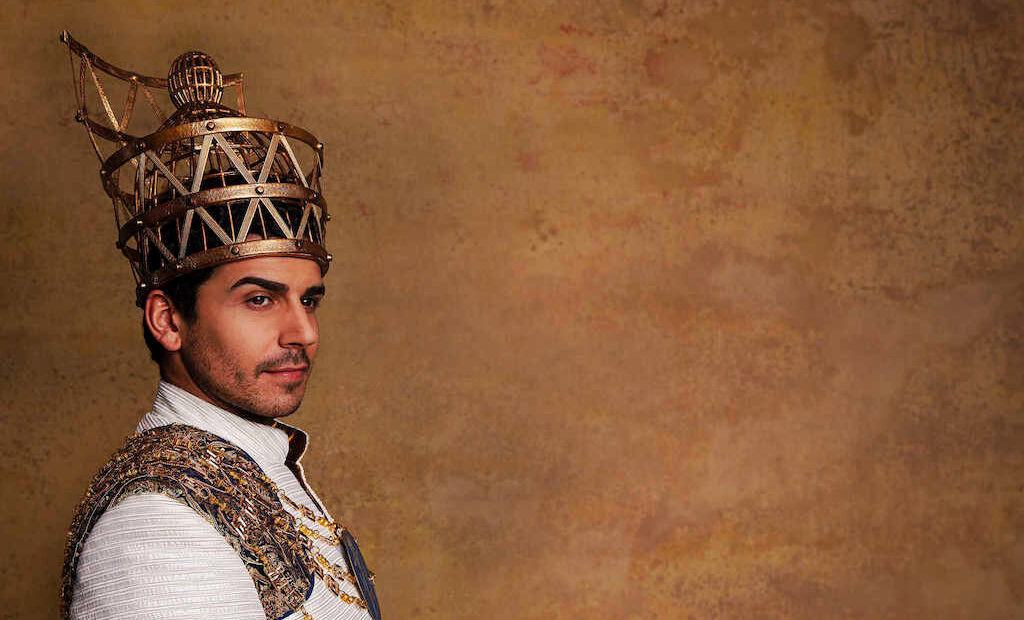
Closed within six weeks of its West End opening due to the pandemic in 2020, Stephen Schwartz’s Grammy-nominated musical The Prince of Egypt is back from 1st July to astonish its audiences with a gripping story and gorgeous music at the Dominion Theatre. Liam Tamne, who plays the tragically villainous character of Ramses, has spent the last year and a half becoming an ambassador for diversity. He has offered us an exclusive interview to give insight into both the musical and his work off the stage.
Hi, thank you for your time! What drew you towards The Prince of Egypt?
The Prince of Egypt has always been something that, throughout my childhood, I have been inspired by because it was the first animated film that represented black and brown people. Normally, the animated characters you saw were white or yellow so the film was a massive experience for me, and also a big moment in time for people of colour. I’ve always been obsessed with the film, so a soon as I knew that a show was being made and I was asked to be involved, I was like, “Yup! Sign me up!”.
What was the first musical you saw?
It might have been Cats on VHS! But then I also saw so much at the Belgrade Theatre in Coventry because I grew up in Coventry City and that was my local theatre. But, being mixed race, theatre wasn’t something that was so readily available for me and my family as we were from a lower class household, so I went on theatre trips with my school and got free tickets to shows. Because my mum and dad worked throughout the holidays, I’d go to Easter and summer camps and do activities that would include going to the theatre and seeing amateur dramatic productions. I also saw Oklahoma on VHS and Les Mis – it was mainly on VHS pretty much!
How do you think the biblical Ramses and the one from The Prince of Egypt are different? In what ways are they similar?
Biblically, we don’t know the character to be Ramses. In terms of time in history and if you look at the archaeological artefacts from ancient Egypt, it actually wouldn’t have been Ramses, it would have been a different Pharaoh. But the biblical Ramses the Great and the one in the show aren’t that different because he did do some great things that changed history. The fact that he signed the first ever peace treaty discovered is, in itself, fantastic, and he gave lots of women power over men – they could even divorce their husbands! He was very ahead of his time. He abolished slavery and designed and created a lot of the ancient architecture that is still standing today. He reigned for a really long time. There were games that happened every 30 years for Pharaohs to display that they were still powerful and he took part in two of them! He was also a redhead, which meant he was closer to the gods because the Ancient Egyptians deemed redheads to be of high power. All that being said, the Bible refers to “Pharaoh”, not Ramses specifically!
Do you think the story of Moses is still relevant today? What can we learn from it – or the musical’s take on it – in a post-pandemic world?
If anything, it’s more fitting today because if we think about what’s happened over the last 15 or 16 months with oppression in terms of Black Lives Matter and people not being heard and understanding one’s privilege and power and knowledge and relationships, faith, love, loss, death – it really is a show that resonates with all of those things. In a crazy, dark way, it serves more purpose after this pandemic. Everything we talk about in the show – relationships and privilege and understanding what that really means and of course oppression – is so meaningful, and needs to be heard and observed even more so now.
How does the stage adaptation of the musical differ from the original DreamWorks Animation film?
It differs slightly. There are a lot of new songs that aren’t in the animated film, so that’s really really exciting, but there is nothing too crazily different. I mean, there is one thing – but I don’t want to give it away – but it’s very fitting in terms of the Ancient Egyptian side of things.
You have been actively promoting diversity in theatre over the course of the last 15 months. How do you go about teaching that?
I don’t really like to say teach. I don’t think I should be teaching because I’m still on my journey of discovery. Diversity isn’t just about representation of colours of skin, it needs to reflect different genders and sexuality, faith, disability – so many areas where we don’t really give people equal opportunities, and I think it’s vital that we listen and reflect and acknowledge the fact that we all have privilege in some shape or form in comparison to others. But in terms of race, I feel like I talk about diversity because I’m African/Indian/Irish and it’s important to me because there are stories that aren’t told or do not reflect the society we live in, and I feel like the numbers of opportunities do not match and it’s only right that I advocate for that and I use my platform (as small as it is) to push that, because I feel like people should be held accountable and I don’t think we should be putting on productions that do not reflect society. If you can’t put on a production and represent the people in the place it is set like The Prince of Egypt has – with representation of so many cultures and backgrounds – then I don’t think you should profit from someone else’s experience or story!
There have been diversity workshops for the whole company during lockdown. What do these workshops include, and how do they promote diversity?
There were a few things that happened in lockdown: we created a diversity forum that consisted of stage management, producers, general management and cast, and we really dissected so many areas of the industry and explored how we could make this a more inclusive workplace and make sure everyone was safe and heard and listened to, and eliminate unconscious bias, and what can be done to better understand one’s privilege. We did a lot of seminars and invited speakers from different areas of society and they discussed how we can create and maintain a more inclusive industry. We’ve started to implement changes within the company of The Prince of Egypt by working with our producers in the UK and in the US, and we’re really trying to make it a better place and want to represent the world we all want to live in. Globally, the majority of people are black and brown, and you wouldn’t think that looking at the history of theatre. We still have a long way to go, but the workshops have been really beneficial so people in positions of power can understand how much work needs to be done
Did Covid-19 significantly change the way you rehearse, and in what ways?
Yes. We get tested daily, we wear masks around the building unless we are performing. There are hand sanitising stations all over the building, we get our temperature checked, if anyone is in close contact with positive cases they have to self-isolate, unlike the sports sector, which is (unfairly) getting away with not doing that! We really stick to Covid protocols and I feel really comfortable and safe and that is down to the hard work of our producers and general management.
Considering the pandemic’s impact on theatre, do you think things will ever return to the way they were before Covid-19?
Yes I believe we will, because we are viable and strong and resilient – and we are extraordinary people. Also people want to go to the theatre. When I look out at the audiences of The Prince of Egypt, I see black and brown faces more than I do white, and, for me, that is so beautiful and meaningful, and it makes us more determined to make theatre available for everyone because we are seeing change, and people are still coming, whether they have to socially distance or not, and are loving it because they have missed it. There are changes in the industry now. A lot more casting directors are asking actors to audition via self-tape, so things are a lot more digital now, especially with online productions. People like The National did that a lot over lockdown so maybe that’s something we’ll continue to do but for me personally, theatre is an experience where you have to be in the room (where it happens – oops, that’s another show, not ours!) and I do believe in miracles (there we are, bringing it back to The Prince of Egypt). I think it definitely will return!
Are there any other exciting projects lined up for either of you in the near future?
I am working on an album that was meant to be out last year but obviously I couldn’t release it because of the pandemic, and financially I had to look after my household and my family. But, yes, there will be other things that I do in the future, but at the moment I’m solely focused on getting back into my show routine and being “show fit” and getting used to all of that.
Thank you so much for your time!
Michael Higgs
The Prince of Egypt reopens at the Dominion Theatre on 23rd July 2021. For further information or to book tickets visit here.
Watch the trailer for The Prince of Egypt here:

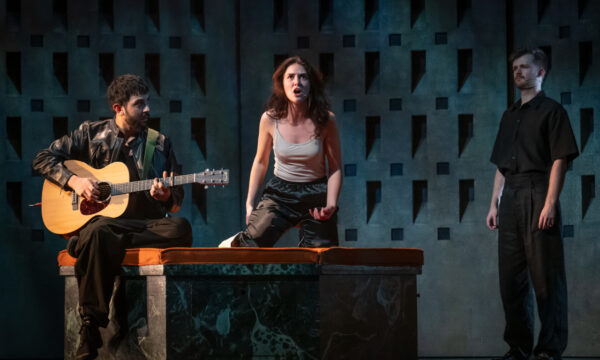
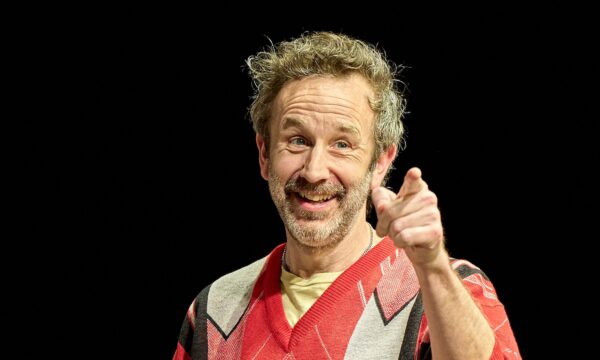
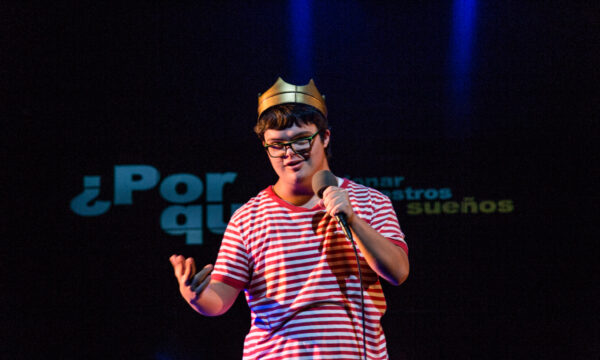












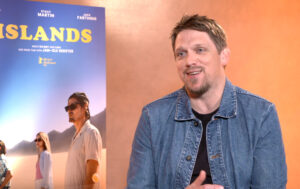
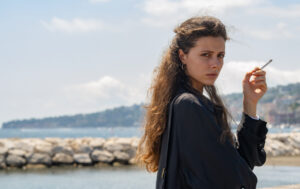
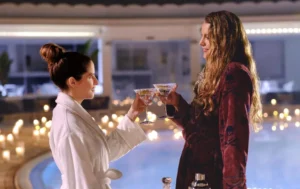





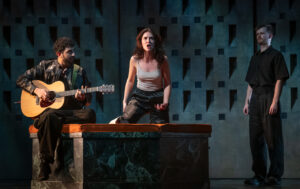
Facebook
Twitter
Instagram
YouTube
RSS